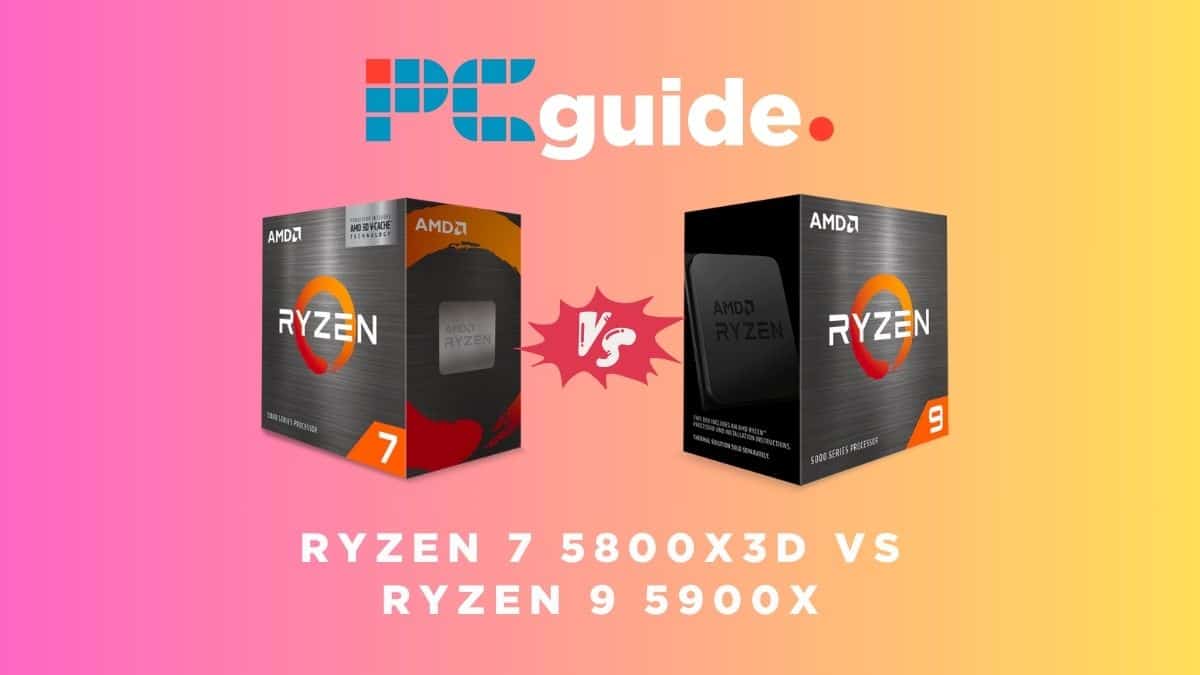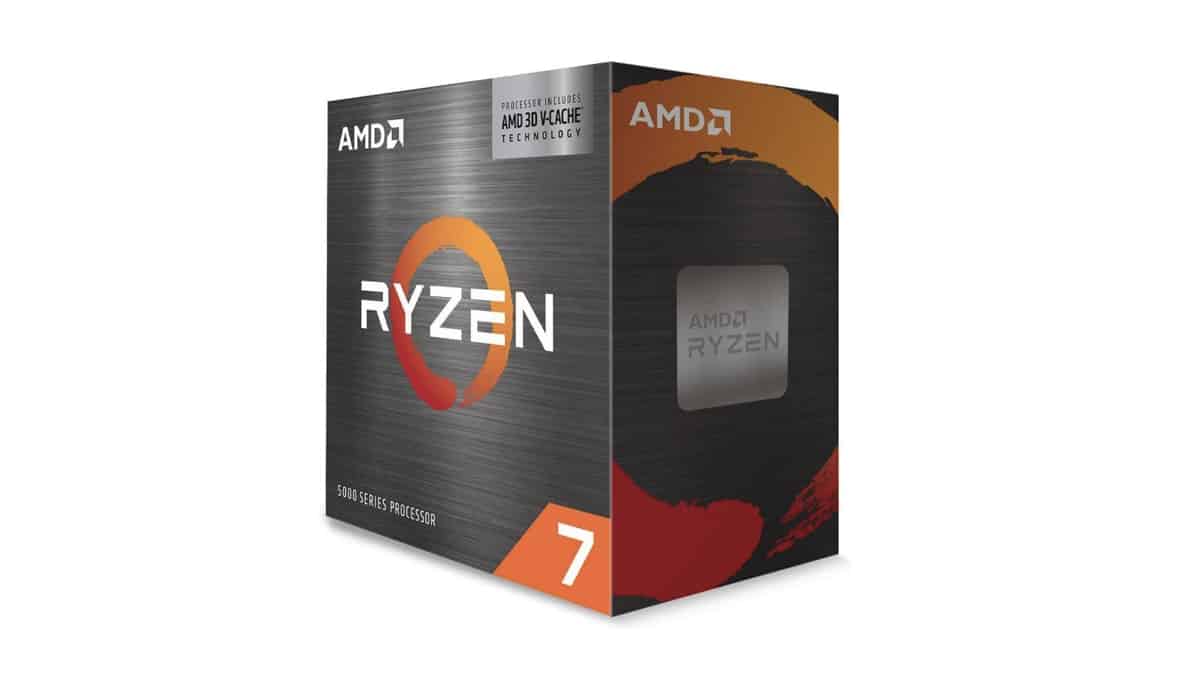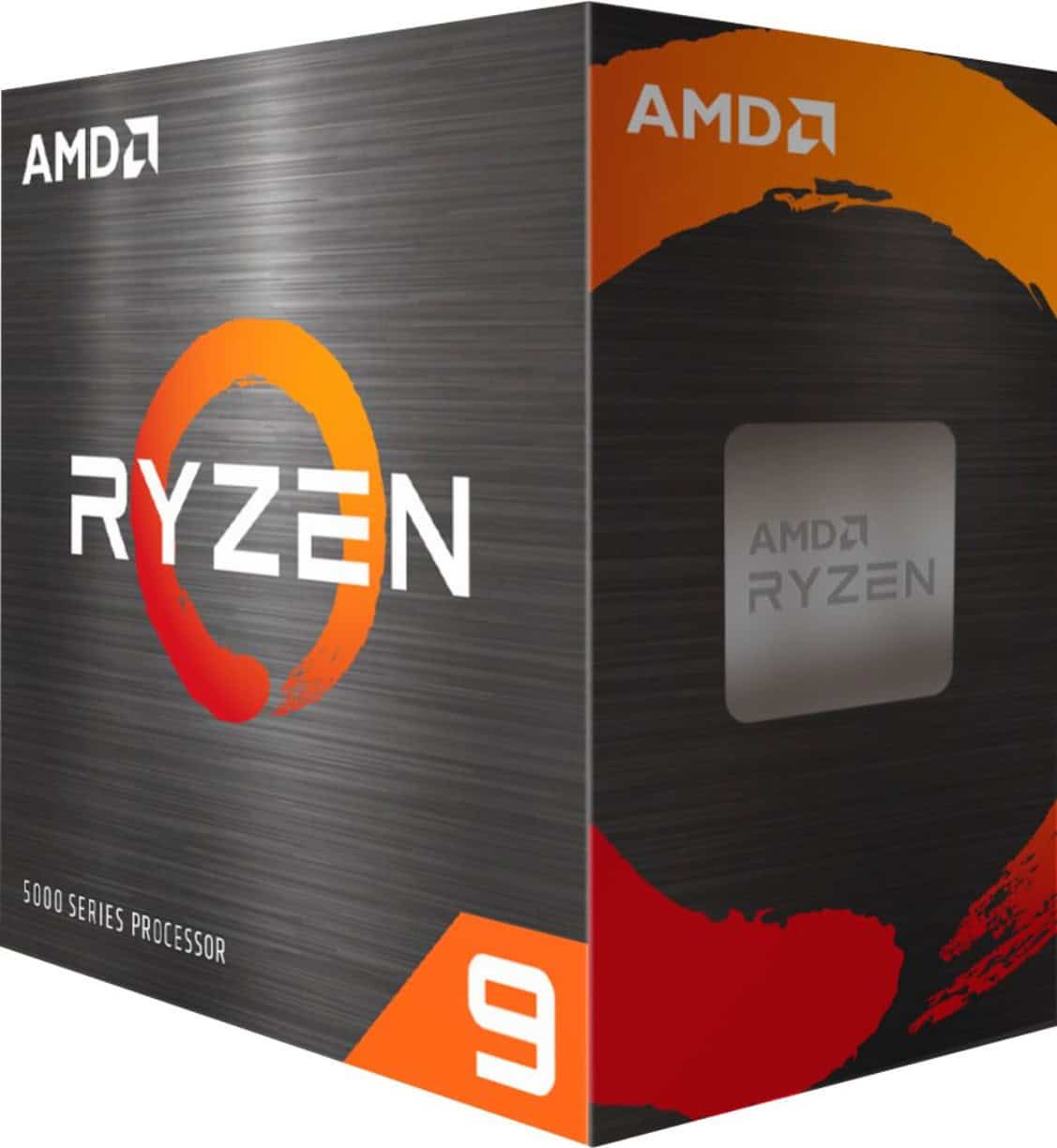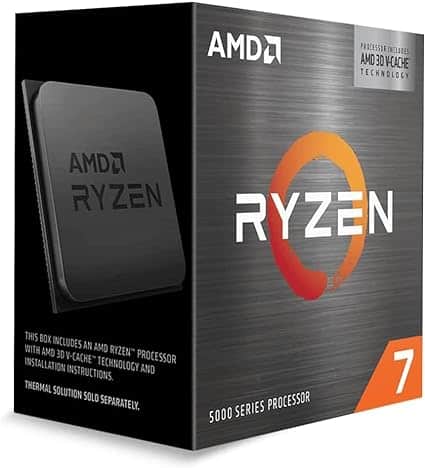Ryzen 7 5800X3D vs Ryzen 9 5900X – gaming or power?

Table of Contents
Are you debating between a gaming or a power-centric CPU? In this comparison of the AMD Ryzen 7 5800X3D vs Ryzen 9 5900X, we dive into a crucial question for modern PC users – should you opt for the gaming excellence of the Ryzen 7 5800X3D, or is the all-around performance prowess of the Ryzen 9 5900X more your style? This face-off is more than just a clash of specifications; it’s about aligning your CPU choice with your computing lifestyle.
The Ryzen 7 5800X3D has made a name for itself as a formidable gaming CPU chip. Its advanced cache technology significantly boosts gaming performance, placing it a notch above many in its category. However, this specialization in gaming does come with limitations. Notably, in areas like content creation, multitasking, and productivity workloads, the Ryzen 9 5900X excels with its higher core and thread count.
Prime Day is finally here! Find all the biggest tech and PC deals below.
- Sapphire 11348-03-20G Pulse AMD Radeon™ RX 9070 XT Was $779 Now $739
- AMD Ryzen 7 7800X3D 8-Core, 16-Thread Desktop Processor Was $449 Now $341
- ASUS RTX™ 5060 OC Edition Graphics Card Was $379 Now $339
- LG 77-Inch Class OLED evo AI 4K C5 Series Smart TV Was $3,696 Now $2,796
- Intel® Core™ i7-14700K New Gaming Desktop Was $320.99 Now $274
- Lexar 2TB NM1090 w/HeatSink SSD PCIe Gen5x4 NVMe M.2 Was $281.97 Now $214.98
- Apple Watch Series 10 GPS + Cellular 42mm case Smartwatch Was $499.99 Now $379.99
- ASUS ROG Strix G16 (2025) 16" FHD, RTX 5060 gaming laptop Was $1,499.99 Now $1,274.99
- Apple iPad mini (A17 Pro): Apple Intelligence Was $499.99 Now $379.99
*Prices and savings subject to change. Click through to get the current prices.
Ryzen 7 5800X3D vs Ryzen 9 5900X: specs
The Ryzen 7 5800X3D and Ryzen 9 5900X present distinct profiles, each tailored to different user and system demands. The most apparent benchmark difference lies in their CPU cores and thread count, with the Ryzen 9 5900X boasting a higher count of 12 cores and 24 threads compared to the 5800X3D’s 8 cores and 16 threads.
This disparity indicates a fundamental difference in their computing power, especially in multi-threaded applications. The 5900X, with its additional cores, is inherently more capable of handling complex, multi-threaded tasks like video editing, 3D rendering, or running multiple intensive applications simultaneously.
Clock speeds, another crucial aspect of CPU performance, also differ between these two models. The Ryzen 7 5800X3D operates at a base frequency of 3.4 GHz and can boost up to 4.5 GHz, while the Ryzen 9 5900X has a slightly higher base clock of 3.7 GHz and a maximum boost clock of 4.8 GHz. The higher this clock is, of course, the better CPU speed and frame rate performance (higher FPS) you can expect to observe.
| Specs | Ryzen 7 5800X3D | Ryzen 9 5900X |
|---|---|---|
| Cores/Threads | 8/16 | 12/24 |
| Base Clock | 3.4 GHz | 3.7 GHz |
| Boost Clock | 4.5 GHz | 4.8 GHz |
| Lithography | 7 nm TSMC | 7 nm TSMC |
| TDP | 105W | 105W |
| Cache L3 | 96 MB | 64 MB |
| MSRP | $449 | $549 |
These numbers suggest that the 5900X could potentially offer faster processing speeds, a benefit in scenarios where high clock speeds are critical, such as in certain types of gaming or single-threaded applications. However, it's the Ryzen 7 5800X3D's substantial L3 96 MB cache, thanks to AMD's 3D V-Cache technology, that provides an edge in gaming performance by allowing faster access to data. Naturally, we’ve weighed in the best GPU for the Ryzen 7 5800X3D to optimize your system’s performance and prevent bottlenecking.
Moreover, the thermal design power (TDP) of both CPUs stands at 105 Watt, indicating similar power consumption and heat output. However, the real-world power efficiency and heat generation can vary significantly based on workload and the processor’s ability to handle it.
Ryzen 7 5800X3D vs Ryzen 9 5900X: performance
In gaming, the Ryzen 7 5800X3D unquestionably takes the lead, especially in high-resolution settings where its cache size makes a discernible difference. However, the Ryzen 9 5900X isn’t far behind, offering more than adequate gaming performance while also excelling in other CPU-intensive tasks. So, for users whose activities span a range of applications, including content creation, streaming, and complex multitasking, the 5900X’s versatility makes it a more appropriate choice.
The distinction becomes more pronounced when considering workloads that leverage multi-threading. Here, the Ryzen 9 5900X’s additional cores provide a significant boost, handling these tasks more efficiently than the 5800X3D. While the 5800X3D is no slouch in general performance, its gaming-focused Zen 3 architecture doesn’t quite keep pace with the 5900X in productivity-oriented applications. However, by pairing the processor with the best motherboard for the 5800X3D, you can expect a more well-rounded overall performance from this chip.
For a deeper dive, we strongly recommend checking out our full Ryzen 9 5900X review so you can see its benchmarks and gaming performance in today’s games. The cliff notes are that this processor still holds up in 2025, as one of the best chips on socket AM4.
‘X3D’ or ‘X’?
With so many numbers and letters in the mix-up, it can be hard to know what means what. A Ryzen CPU with ‘X3D’ on its name means that the chip has stacked L3 cache. It’s for this reason that we’ve said that the 5800X3D is better for gaming
Ryzen 7 5800X3D vs Ryzen 9 5900X: price
As expected, price plays a pivotal role in this decision. The Ryzen 7 5800X3D, while excelling in gaming, comes at a price point that is more accessible compared to the high-end Ryzen 9 5900X. This price difference is crucial for users balancing performance needs with budget limitations.
The 5900X, while more expensive, offers value in its versatility and power, making it an investment for users who demand more from their CPU than just gaming performance.
Ryzen 7 5800X3D vs Ryzen 9 5900X: conclusion
In summary, if your primary focus is gaming, especially at higher resolutions, the Ryzen 7 5800X3D is an unbeatable choice for its price. Its gaming performance is top-tier, and the lower price point makes it an attractive option for gamers.
However, if you require a CPU that can handle a variety of tasks including content creation, streaming, and heavy multitasking, the Ryzen 9 5900X, despite its higher price, offers the versatility and power needed for these demanding applications. Your decision ultimately hinges on your specific use case and how much you value gaming performance over general computing power.




